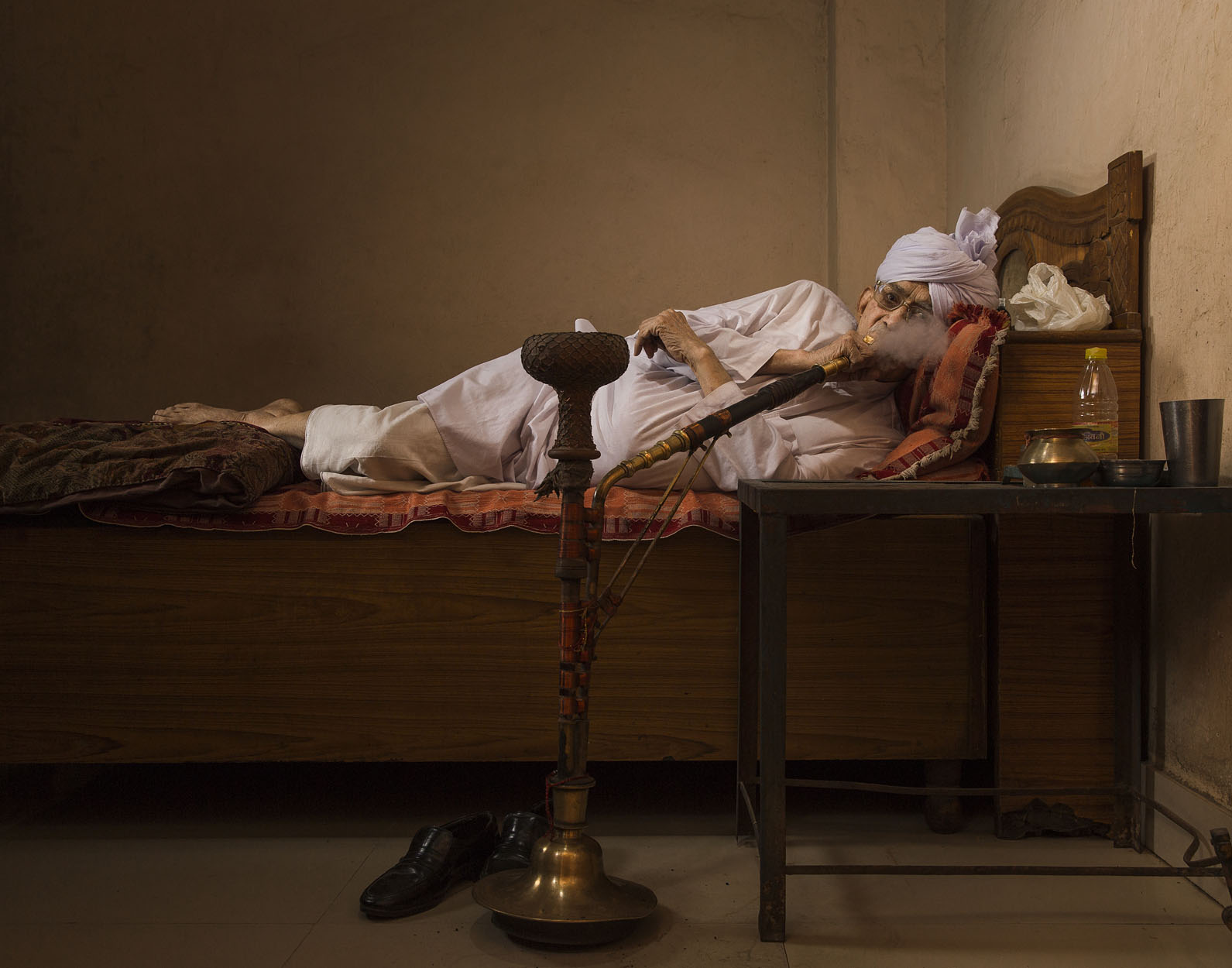My name is Fateh Singh, and I was born on June 14th, 1920 in India.
As a youth in the 1930s, our education system was very poor. We didn't have much economic opportunity, and the schools were very strict. I remember our teachers beating us badly if we were not studying or working. One day my mother brought me to school, saw a teacher beating us, and took me out of the class.
She told me it was better to work with the family at the farm than be abused by the teachers. I never went back to school from that point.
In the 40s, I saw people joining the Army seemingly left and right. India had one of the biggest volunteer Armies in World history. I was motivated by all the volunteers eager to fight for our country, and decided to join myself. I went to the Lal Quila in Delhi and enlisted in the Army at the age of 19.
I was then sent to Meerut and Lahore to train. During training they conditioned us, taught us how to use guns and also how to repair them when they broke. We also learned how to use landmines properly, which would later come in handy.
After the training finished, we received 28 days of holiday leave. I went home during that period. Once the holidays were over, we returned to the Army and went to Nagpur. News soon came that we were being sent to Northeast India to combat Japanese fighters in Assam.
When we got the order to go to war, I was excited, but a little worried. There were relatively few of us compared to our enemy. Despite being outnumbered, I knew deep down we had the spirit to win. Amongst my regiment, we comforted ourselves by noting that even though there were few of us, we were on the safe side of the mountains. That was our solace, and our advantage. We used landmines to defend ourselves from encroaching Japanese tanks. As they tried to approach us they were destroyed.
Soon, our Army's resilience overwhelmed Japan, and they surrendered to us.
Once we defeated the insurgents in Assam, we went to Rangoon, Burma to fight more Japanese soldiers. Through sheer will, we overwhelmed the Japanese army and they surrendered there as well. The faith we had in ourselves helped us prevail against the harsh odds. Japan had given us thousands of weapons when they surrendered, and we gave them to the British Army.
Once we successfully defended our home front, we were sent to China via ship. In my old age I don't quite remember the experience in China, but I know I made it back! When we came back from China, I went to Rawalpindi, which is now Pakistan, to decompress. We were given a few days off for the holidays to rest. After the break was over, I returned to the rest of my comrades in Lahore. The leaders there told us the war was not over, but we had the individual option to leave and go back home. Quitting was no option for me, so I went back to the front lines.
During our time patrolling the home front, we were frequently sent to patrol for Japanese soldiers infiltrating our general area. One day, a fleet of us went out to oversee the countryside. On the way back from patrolling, I stayed behind the rest of the troops, watching for any potential attackers from the rear. Then I saw some Japanese soldiers but it was too late to react - they noticed me and opened fire. I was shot in the left leg. I was in immense pain, but I couldn't even scream and alert my troops. If I did, the Japanese probably would have shot me dead. I stayed silent and waited it out.
I ended up lost in the forest for 11 painful, lonely days. I later found out that my family was informed that I was dead during this time and they even had a funeral. In the meantime, I was writhing in pain, laying wounded in the forest. I managed to gather myself and traverse the woods. I eventually found a village, of which I can't quite remember the name. The village people had mercy on me and took me to a hospital. After basic treatment at the hospital, I was sent back home.
My family was ecstatic to see me. Just imagine their transition from believing I was dead to seeing me in relatively good health! I recuperated amongst my family for the rest of the war.
I was married in 1948 to my wife Shandidevi, and had two daughters and three sons. I retired from the Army in 1952 and went back to the family farm. I was getting proposals to work at railways, but I always denied them. My family wanted me to stay with the farm, and that's what I did for the entirety of my life.
These days, I don't do as much as I once did. I'm in frequent pain, but I still enjoy the good moments. I live with my family, who take care of me. The light of my life is waking up and playing with my grand children. Every August 15th, Indian Independence Day I hoist the countries flag in my neighborhood. I'm proud that I was apart of that struggle.
